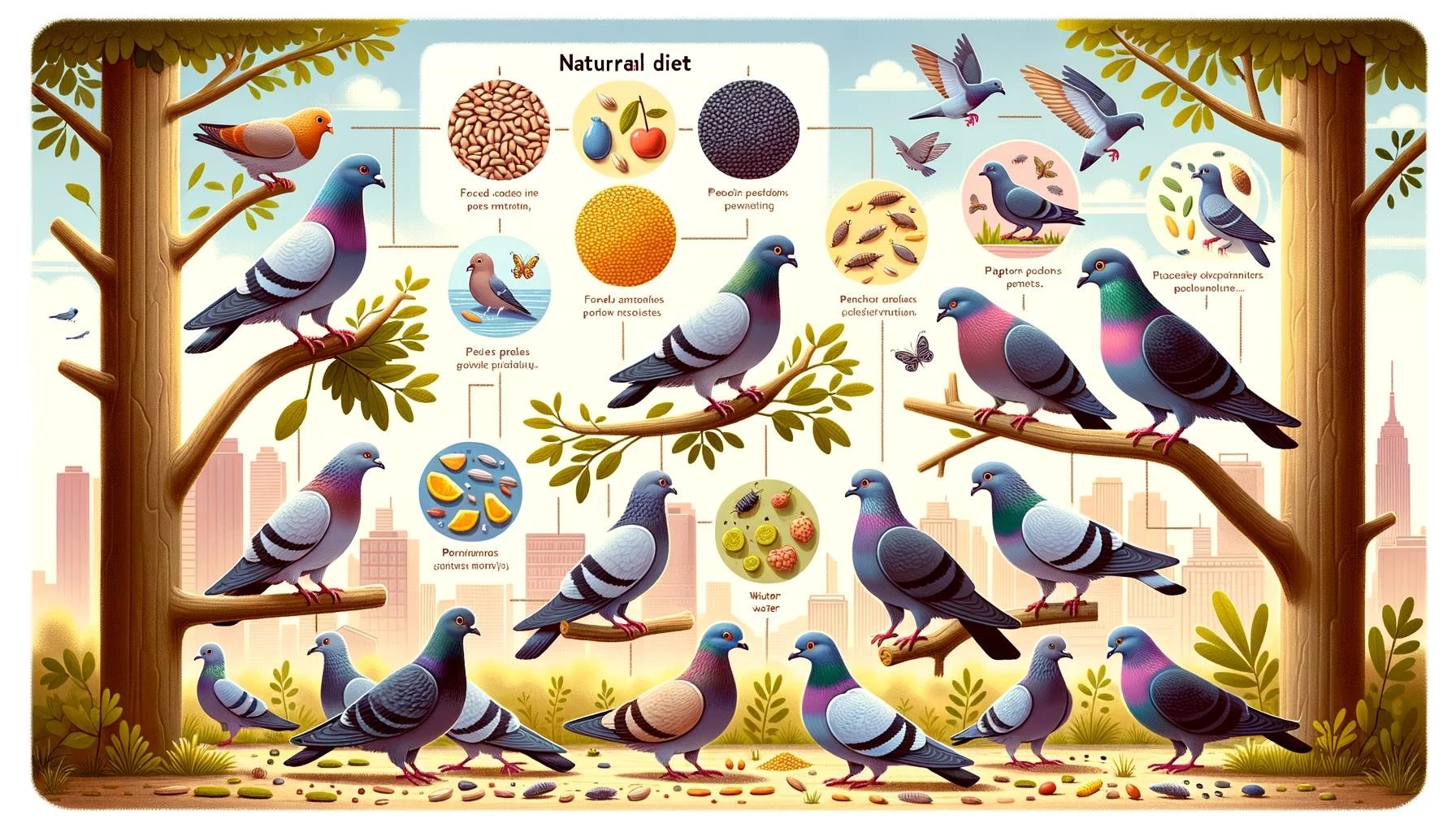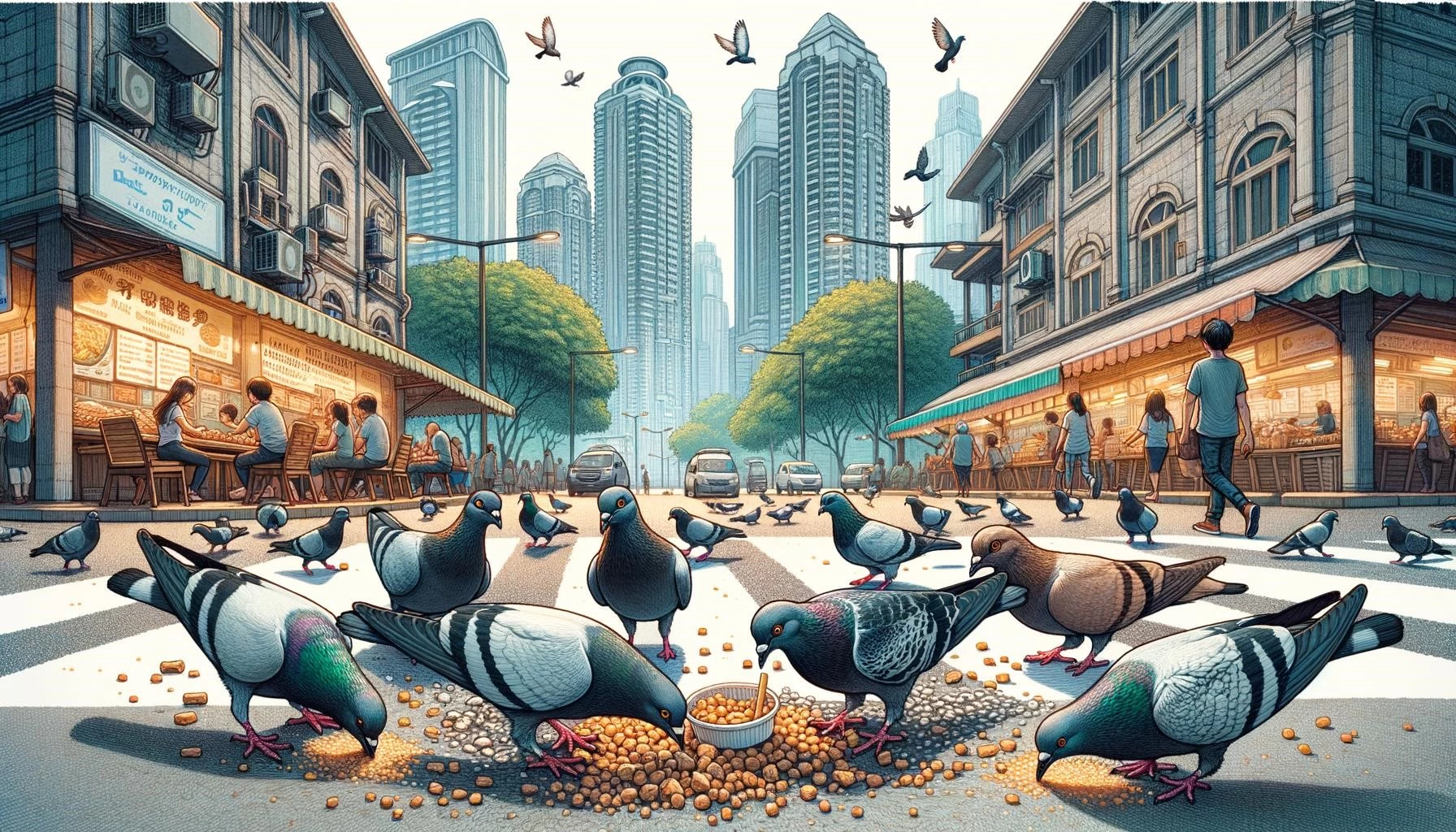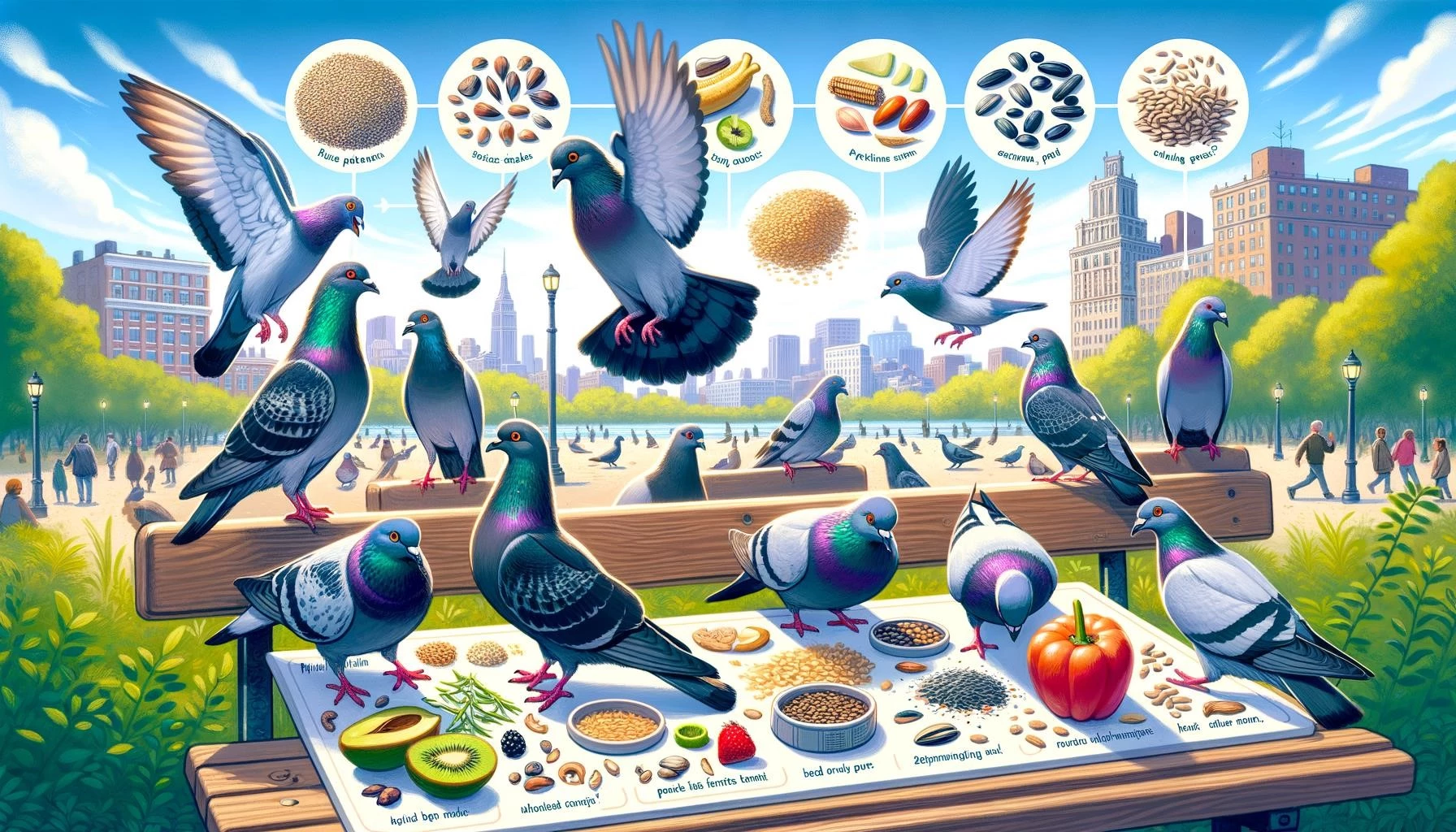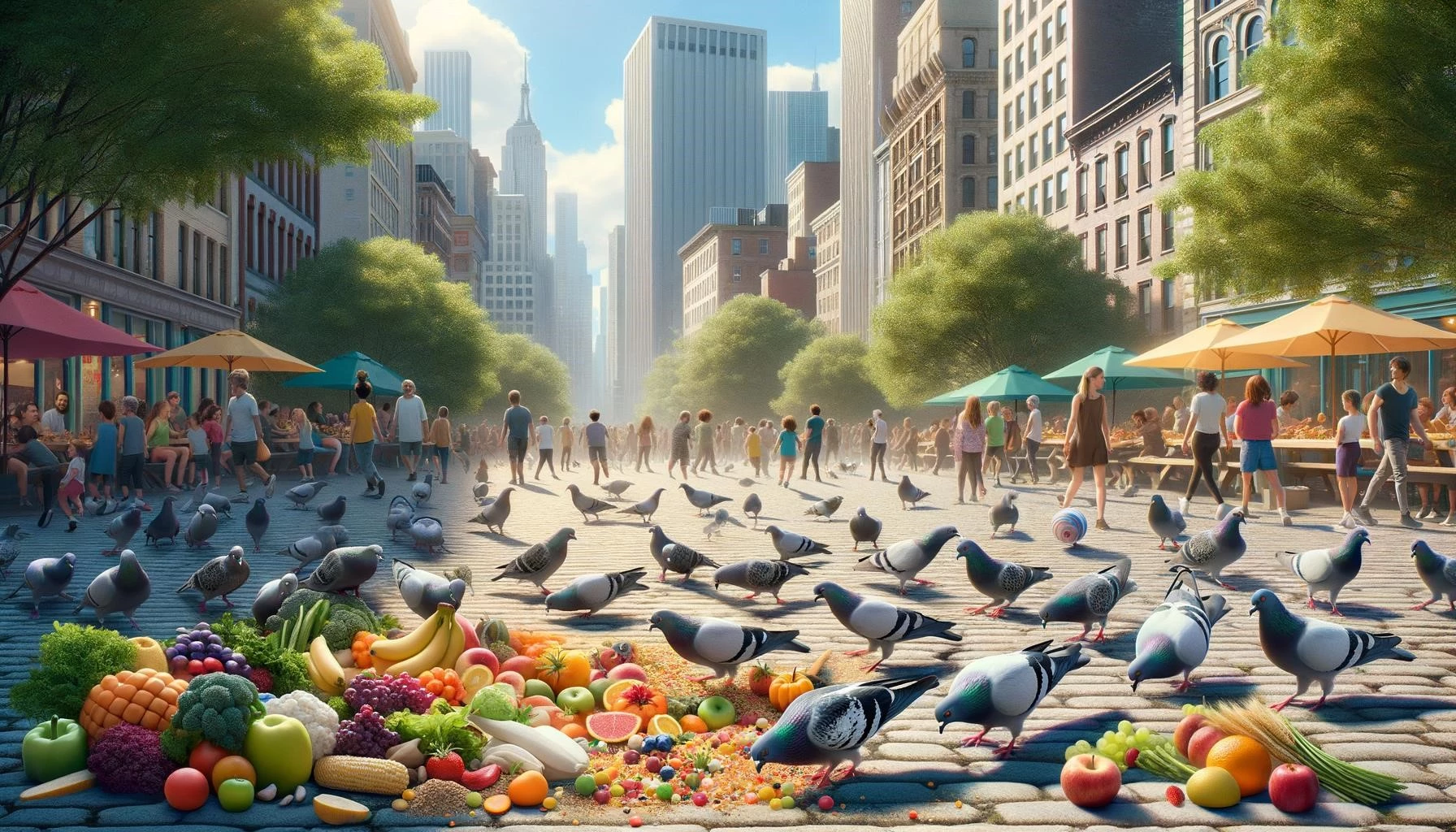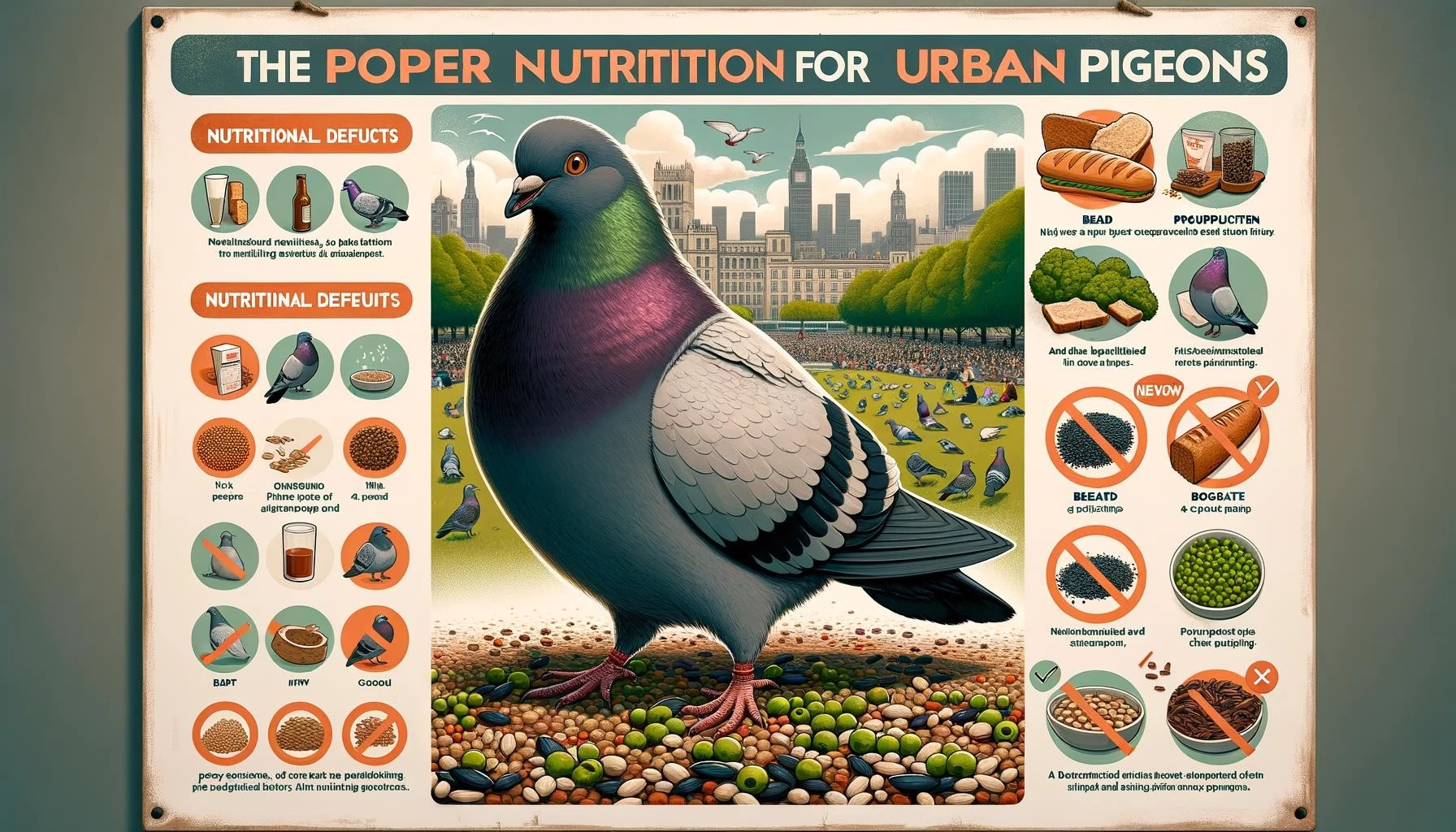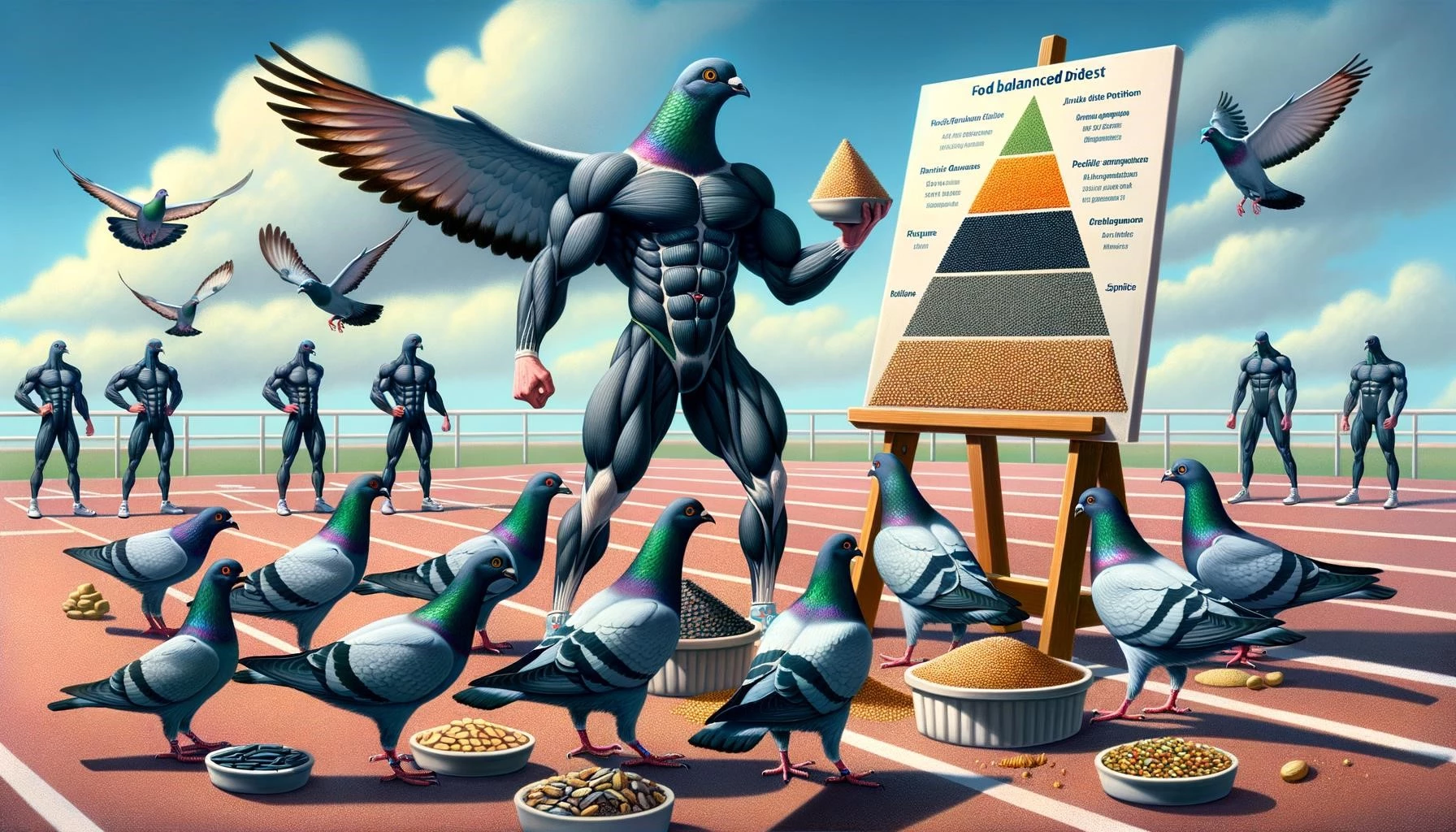Urban pigeons, also known as rock doves, have become a familiar sight in cities around the world. These birds have adapted to urban environments and can be found in parks, plazas, and even on city streets. One of the reasons for their success is their ability to find food in a variety of sources. While their natural diet consists primarily of seeds, urban pigeons have learned to rely on a diverse range of food sources, including insects and human leftovers. In this article, we will explore the diet of urban pigeons in more detail.
Key Takeaways
- Urban pigeons have adapted to eating a wide variety of food sources in urban environments.
- They primarily feed on seeds, but also consume insects, worms, fruits, vegetables, and human leftovers.
- Pigeons require access to water, especially during breeding season, and should avoid dehydrating foods.
- While pigeons can eat human foods, such as bread, popcorn, biscuits, chips, rice, pasta, and fish, these should be given in moderation due to their health implications.
- An ideal diet for pigeons includes a balance of fresh vegetables and limited amounts of fruit.
Seeds and Grains
Seeds and grains are a staple of a pigeon’s diet. In their natural habitat, pigeons feed on a variety of seeds, including those from grasses, trees, and flowers. In urban environments, pigeons often find seeds in parks, gardens, and even from passerby who intentionally or unintentionally provide them. Pigeons have a special adaptation called a ″crop″ that allows them to store food and digest it over time. This helps them consume large quantities of seeds and grains when food is available, which can sustain them during times when food is scarce.
Insects and Invertebrates
While urban pigeons are primarily herbivores, they also consume insects and invertebrates when needed. Insects such as worms, ants, and snails provide a source of protein and other essential nutrients. Pigeons may forage on the ground or even pick insects off plants or buildings. Their ability to switch between plant-based and insect-based diets allows them to adapt to changing food availability in urban environments.
Human Leftovers
Urban pigeons have become adept at scavenging for food in human environments. They will consume a variety of foods that are discarded by humans, including bread crumbs, popcorn, biscuits, chips, rice, pasta, and even fish. Pigeons are known for their ability to locate and consume food scraps that are left behind in parks, plazas, and outdoor eating areas. While these foods can provide an additional source of nutrition for pigeons, they should be given in moderation as they can be detrimental to their health if consumed in excess.
It is important to note that pigeons require access to water, especially during the breeding season. Pigeons may drink from puddles, fountains, or even bird baths. Therefore, providing a water source in urban areas can help attract pigeons and encourage their presence.
In conclusion, urban pigeons have a diverse diet that includes seeds, insects, fruits, vegetables, and human leftovers. They have adapted to urban environments and have become skilled at finding food sources in various locations. While pigeons can eat a wide range of foods, it is important to provide a balanced diet that includes fresh vegetables and limited amounts of fruit, while avoiding dehydrating and unhealthy foods.


